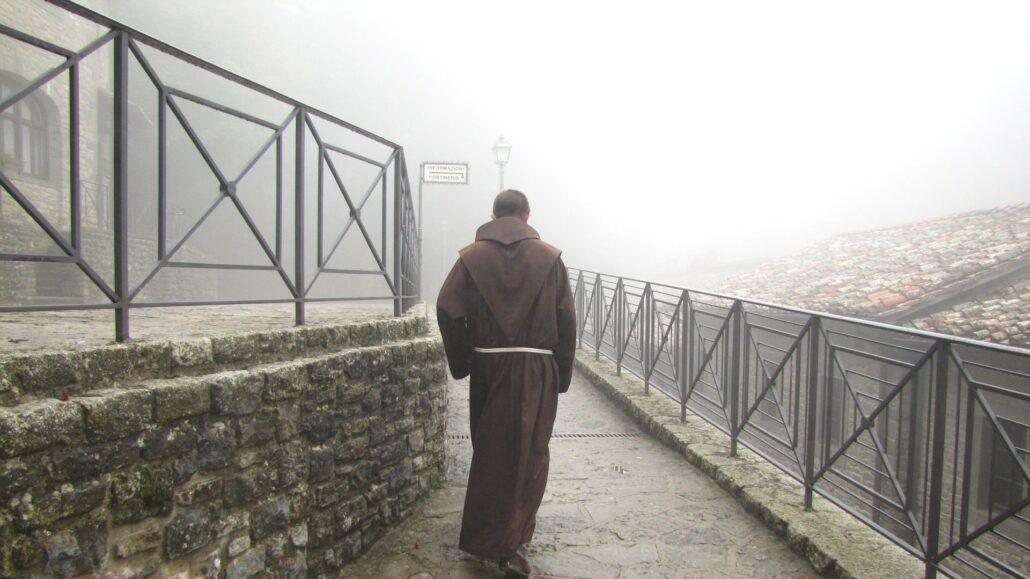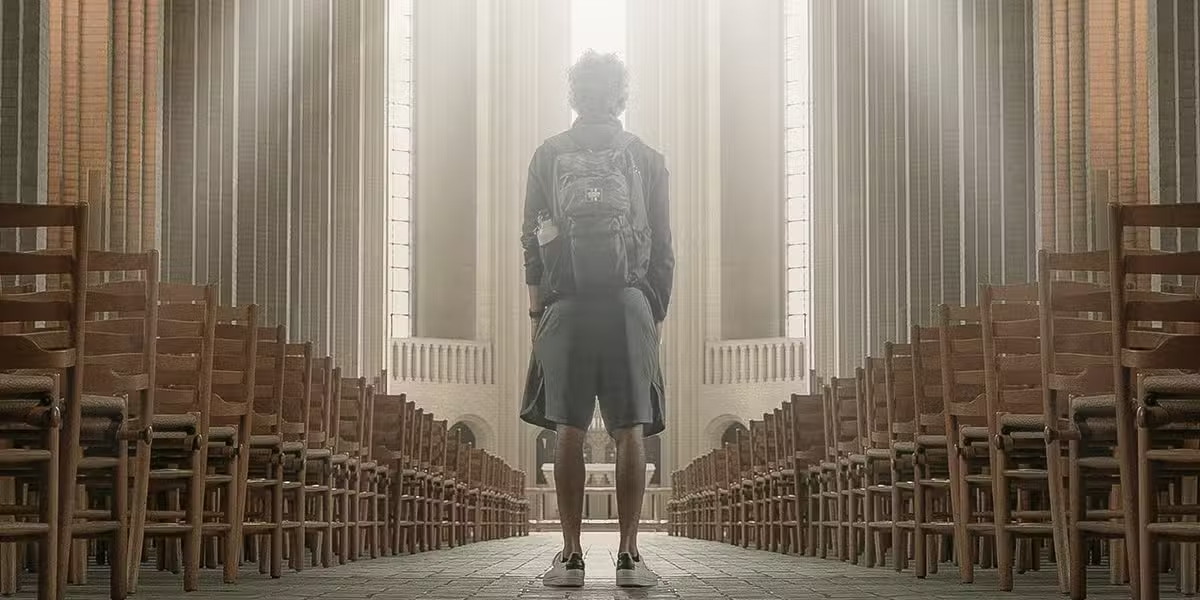Franciscan spirituality boldly puts a big exclamation point behind Jesus’ words that “The last will be first and the first will be last!” and Paul’s “When I am weak I am strong!” Upside-downness is at the heart of our message, always prompting us to look more deeply and broadly. This opens up our eyes to recognize God’s self-giving at the far edges where most of us cannot or will not see God, such as other religions, any who are defined as outsider or sinner, and even to the far edge of our seeing, toward those who are against us—our so-called enemies.
In fact, truth, love, and beauty are most beautifully found at the lowest, weakest, and most concrete possible levels, like in a frog, a fugitive, or what others might call a freak. You have to accept God’s divine freedom to see this way! You must grow up to your full stature to find the full stature of God (Ephesians 4:13). Small souls are incapable of knowing a great God, and great souls are never satisfied with a small or stingy God. You have to become conscious yourself, and then all things will be beautiful.
Seeming absence, ironically, becomes the deepest recognition of presence, because it is thus awaited and needed. The entire world is indeed sacramental and mediates the message, and yet it is hidden in such a way that only the humble and honest—and suffering—will find it.
St. Bonaventure said that an uneducated washer woman could, without even knowing it, be much closer to God than a doctor in theology such as himself.
Francis’ own intuitive wisdom did not come from the outside or the top, but from deep inside him, because he allowed his heart to be broken and poor, especially when his vision for the friars was largely abandoned in his own lifetime. It is there that God can most loudly speak—which is really a constant Biblical theme, reaching its apogee in Jesus’s inaugural line “How blessed are the poor in spirit” (Mt 5:3).
Note also how Francis was able to trust his own limited, formally uneducated, and simple human experience to know what he then knew with such calm conviction. Very early on, for example, when the friars were already being invited to dine with bishops and serve as court chaplains to cardinals, he strongly speaks against accepting these gracious invitations and says, “You are thus being drawn away from the womb of your mother.”
Now if he really said this, he is either anti-social, holier than thou, or he quietly knows what his core God experience demands. There is no secondhand knowledge of God for Francis and Clare. The best window to knowledge is through “the crack in everything,” as Leonard Cohen puts it.
Francis wanted us to stay close to the cracks in the social fabric, and not to ensconce ourselves at the safe, even churchy, center. Not only were we Franciscans not to be prelates in the church, but we should not hobnob there too much. You tend to think like those with whom you party.
Finally, any temptation to either elitism or individualism is strongly overcome in Franciscan mysticism by its adamant insistence on identification with the cross, solidarity with the poor, and with human suffering in general. Solidarity with the suffering of the world and even with the suffering of God is Francis’s starting place, and not any kind of search for private moral perfection. This keeps the contemplative journey from mere introversion, sweet piety, private salvation, or any antisocial or privatized message, whereby I imagine that I can come to God by myself apart from union with everything else.
The Franciscan motto is, thus, Deus Meus et Omnia, “My God—and all things.”









5 thoughts on “The Paradox of Franciscan Spirituality”
I don’t think living in a monastery is about being anti-social.
And your point? No, you have indeed missed the point!
Though it be a hot and muggy day here in Central New York I wrap myself in Richard Rohr’s words of wisdom… each finding those ‘desert spots’ in my life and irrigating them when the well runs dry,
Thank you, Richard as you continue to be my ‘Rock ‘N Role-Model … God bless whoever it was who introduced me to you over 40
years ago.
Secular Franciscans may be even more attracted to that sort of “churchiness” that keeps us from falling “through the cracks” and into the arms of God with the poor and marginalized, including with other suffering non human creatures.
Fr Richard Rohr never ceases to blow my mind and draw me away from a confined outlook into an expanse where God is limitless and all inclusive and a new freedom enters my soul. Thank you Fr Richard for your inspirations.